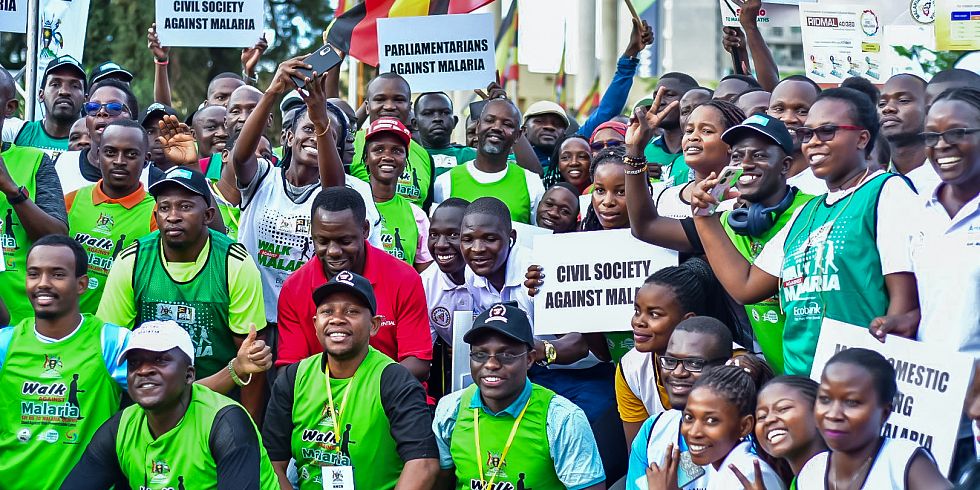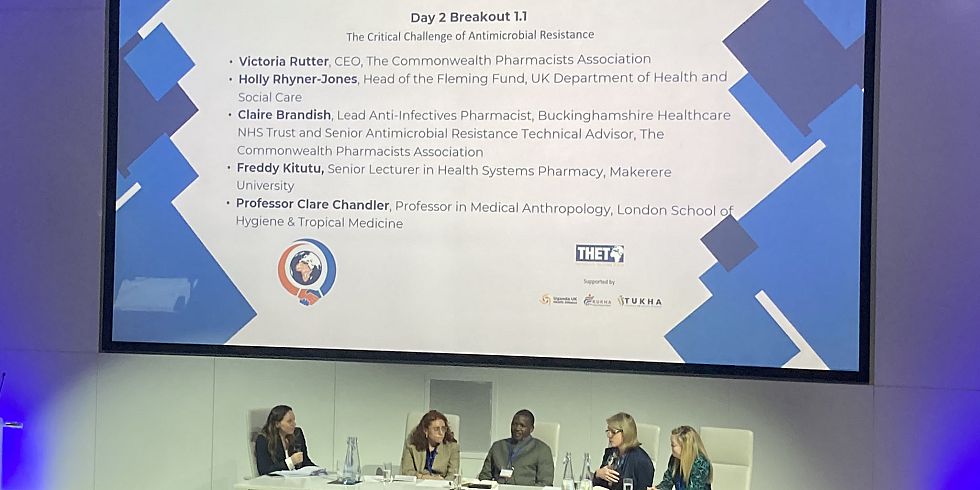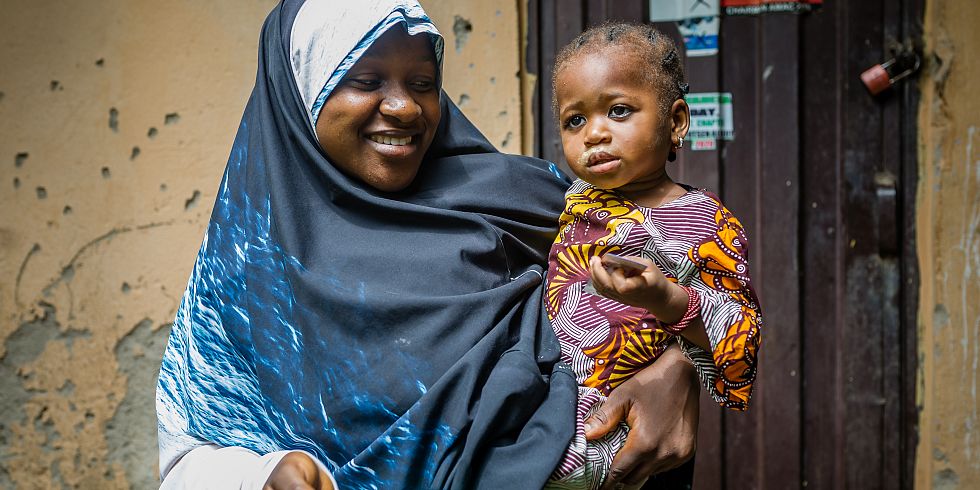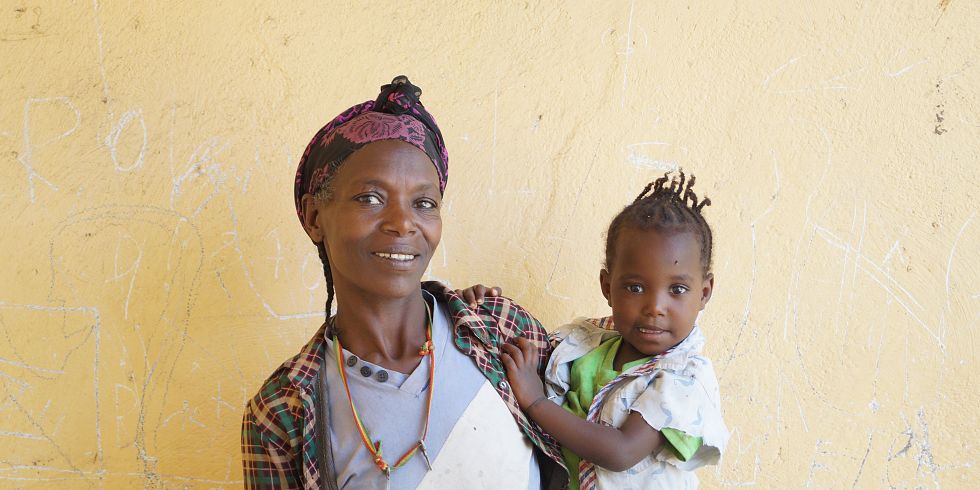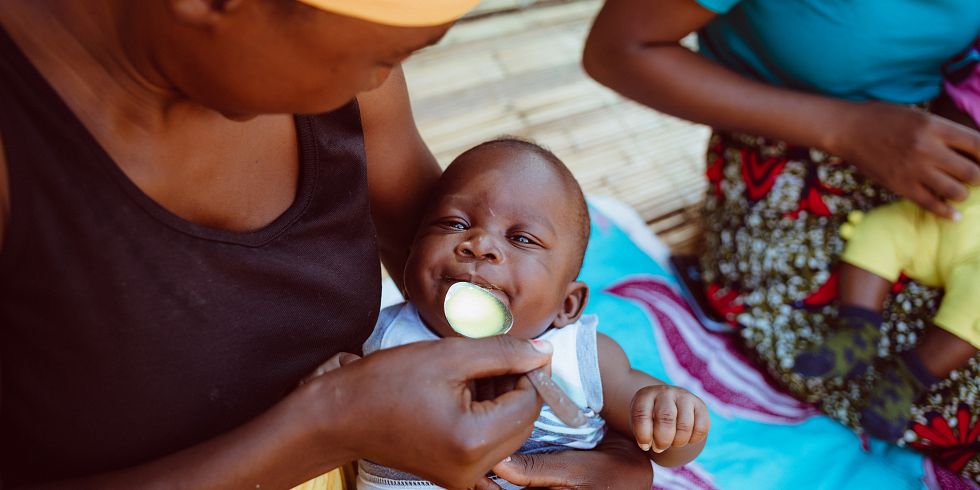Latest News
Months: Jan Feb Mar Apr May Jun Jul Aug Sep Oct Nov Dec
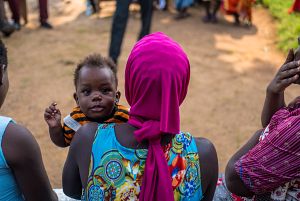
World Malaria Report 2022: Progress against malaria is stalling – what needs to change?
8 December 2022Today, the World Health Organization (WHO) published its World Malaria Report for 2022, assessing global and regional malaria trends over the last year and providing an opportunity to reflect on progress towards global targets.
T…
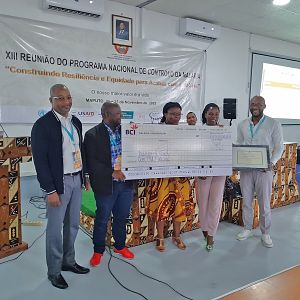
Malaria Consortium presents data quality evaluation results to Mozambique’s Ministry of Health at national malaria strategy meeting
1 December 2022Malaria Consortium presented results from an evaluation of data quality for in-hospital malaria deaths to Mozambique’s Minister of Health at the at the 13th meeting of the National Malaria Control Programme (NMCP) in Maputo …

UK Government reduce contribution to The Global Fund to Fight AIDS, Tuberculosis and Malaria
14 November 2022Today, the UK Government announced its pledge of £1 billion to The Global Fund to Fight AIDS, Tuberculosis and Malaria.
The long-anticipated announcement comes nearly two months after the Seventh Replenishment Conference in…
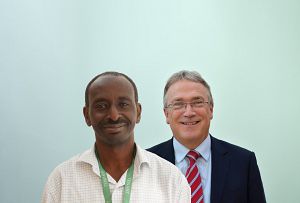
An exciting era as James Tibenderana starts new role as Malaria Consortium’s Chief Executive
4 November 2022This week, Malaria Consortium welcomes James Tibenderana as he starts his new role as Chief Executive of the organisation. James joined Malaria Consortium in 2005, a few years after it was founded, and worked as Africa Technical D…
Uganda celebrates launch of SMC as part of roadmap to achieve zero malaria status by 2030
26 October 2022Today, Uganda celebrated the official launch of its seasonal malaria chemoprevention (SMC) programme at an event in Moroto, attended by Uganda’s State Minister for Health - General Duties, Anifa Kawooya. In 2023, the governm…
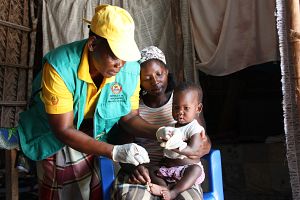
Community health workers are saving costs of care for the three major childhood illnesses in Mozambique and Uganda
7 October 2022New research from Mozambique and Uganda has shown that effectively trained community health workers (CHWs) can reduce treatment costs for malaria and pneumonia among children under five in rural areas of the countries. The finding…

WHO urges African countries to join forces to stop the spread of Anopheles stephensi
30 September 2022Today, the World Health Organization (WHO) launched a new initiative in the hopes of stopping the invasive mosquito species, Anopheles stephensi, from spreading further in Africa. Through this, national malaria control programmes,…
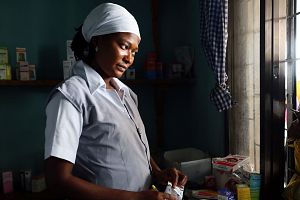
UK must move quickly to match commitments of allies at Global Fund conference
22 September 2022Yesterday, governments around the world pledged a record US$14.25 billion at the Seventh Replenishment conference for the Global Fund to Fight AIDS, Tuberculosis and Malaria in New York, hosted by US President Joe Biden. The confe…
Genomic surveillance used to improve malaria treatment in Mozambique
20 September 2022Health workers in Mozambique are collecting samples for genomic surveillance of malaria to monitor malaria transmission intensity and resistance to antimalarial drugs and diagnostics.
Mozambique has the fourth-highest malaria bur…

R21 malaria vaccine gives up to 80 percent protection
8 September 2022Impressive trial results for the R21/Matrix-M were published yesterday in the Lancet showing up to 80 percent protection against malaria in children aged five to 17 months. The vaccine, developed by scientists at the University of…

Renewed UK-ASEAN development partnership
18 August 2022On 4 August, the first Post Ministerial Conference (PMC) was held in Phnom Penh, Cambodia, to draw up a Plan of Action to guide implementation of the goals and objectives of the Association of Southeast Asian Nations and the Unite…
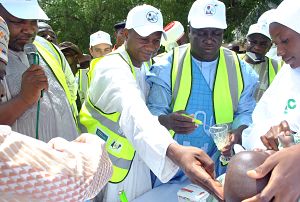
Inauguration ceremony and launch of the Nigeria End Malaria Council
16 August 2022Today in Nigeria, the inauguration and launch of the Nigeria End Malaria Council (NEMC) – a public-private partnership formed to support the National Malaria Elimination Programme (NMEP) in achieving its goal of ending malar…
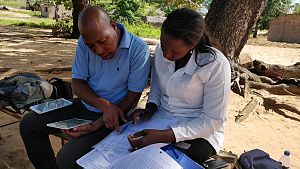
Assessing the effectiveness of a community digital health platform in Mozambique
26 July 2022In a new learning paper published today, Malaria Consortium reviews the effectiveness of upSCALE, a community digital health platform implemented in Mozambique. Over a four-year period, upSCALE proved to be a supportive, agile pla…
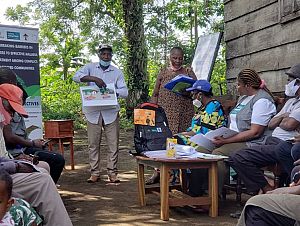
Community dialogues increase knowledge and improve uptake of malaria services among internally displaced communities in the Southwest and Littoral regions of Cameroon
22 July 2022Globally, Cameroon is among the 15 highest burden malaria countries, with three percent of all global malaria cases and three percent of malaria deaths in 2019; this represents the third highest number of malaria cases in Central …

Greater support needed for health systems in high disease burden countries to ensure equitable distribution of malaria vaccine
13 July 2022Alongside the announcement of the World Health Organization’s (WHO) framework for the allocation of limited malaria vaccine supply published earlier this week, Malaria Consortium published Vaccines: The cornerstone of diseas…

Malaria Consortium appoints Dr James Tibenderana as new Chief Executive
7 July 2022Malaria Consortium’s Board of Trustees is delighted to announce the appointment of Dr James Kananura Tibenderana as its new Chief Executive who will succeed Malaria Consortium’s current Chief Executive Charles Nelson w…
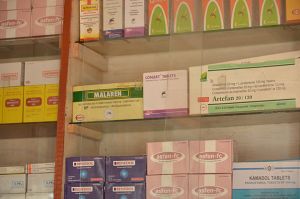
Access to anti-malarials must be synchronised with access to diagnostic tests to avoid malaria medicine misuse in Nigeria
6 July 2022The supply of rapid diagnostic tests (RDTs) and artemisinin-based combination therapy (ACT) medicines needs to be synchronised to prevent high levels of ACT misuse in Nigeria, a new study has found. Malaria Consortium researchers …
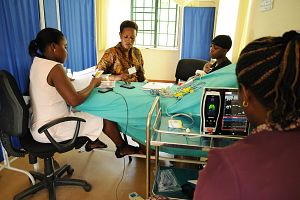
Sub-Saharan countries well positioned to pioneer digital molecular diagnostics for infectious diseases as part of an African digital transformation
1 July 2022In a new paper published in PLOS Digital Health, researchers highlight how early adoption of digital molecular diagnostics – small electronic tools that analyse samples and give a diagnosis for infectious diseases – co…

$4 billion renewed commitment to end malaria and NTDs as countries mobilise to get progress back on track
24 June 2022Yesterday, over US$4 billion in funding was committed to ending malaria and Neglected Tropical Diseases (NTDs) at a Summit co-convened by the RBM Partnership to End Malaria and Uniting to Combat NTDs. The Summit, held alongside th…
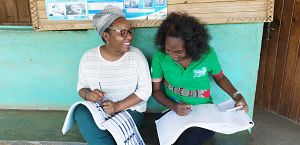
Research insight - Shared malaria surveillance expertise has transformative effect on success of surveillance as a core intervention in moderate to high transmission settings
21 June 2022New research suggests that making use of practical experience can have a transformative effect on the success of malaria surveillance as a core intervention (SACI) in moderate to high malaria transmission countries. Malaria Consor…
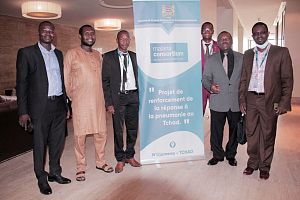
Pneumonia project launched in N’Djamena, Chad
17 June 2022A new initiative to improve the prevention, diagnosis, treatment and referral of children with pneumonia in Chad was launched today at an event in N’Djamena. The event was attended by the Minister of Planning and National Ec…
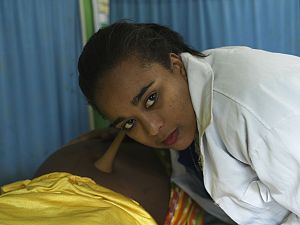
Malaria Consortium join discussions with UK Government on climate change and global health
10 June 2022Yesterday, Malaria Consortium’s Senior Country Technical Coordinator in Nigeria, Olusola Oresanya, joined civil society representatives at a roundtable convened by Action for Global Health (AfGH) and the UK Government’…
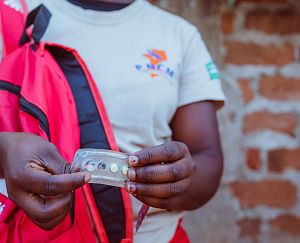
WHO issue new guidelines on seasonal malaria chemoprevention implementation – our response
8 June 2022On 3 June 2022, the World Health Organization (WHO) issued new malaria chemoprevention guidelines. While previous WHO policy recommendations provided specific guidance on how chemoprevention interventions should be implemented, th…

Annual SMERG meeting drives digitalisation of malaria surveillance
20 May 2022The RBM Partnership to End Malaria hosted its 33rd meeting of the Surveillance, Monitoring, and Evaluation Reference Group (SMERG) from 17 to 20 May 2022 in Kigali, Rwanda. Discussions focused on ways to streamline surveillan…
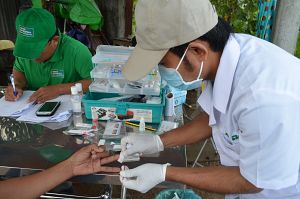
Virtual Microbiology and Infectious Disease Summit 2022 explores malaria diagnostics
18 May 2022Yesterday, the Virtual Microbiology and Infectious Disease Summit 2022 hosted a selection of world-leading health experts in microbiology and infectious disease, presenting on a range of cutting-edge public health topics via live …

Launch of UK government’s new International Development Strategy raises more questions than answers
18 May 2022The UK government has this week published its International Development Strategy (IDS), detailing how the UK plans to take forward its strategic priorities to support low- and middle-income countries (LMIC) over the next 10 years.…
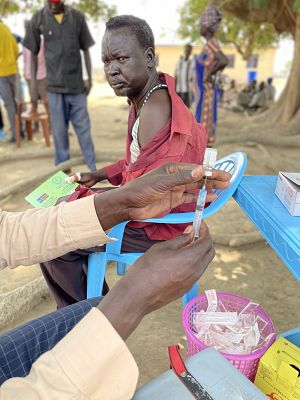
Malaria Consortium records highest COVID-19 vaccination coverage rates in South Sudan
28 April 2022Malaria Consortium has recorded the highest COVID-19 vaccination coverage rates in South Sudan in their work supporting the National Ministry of Health’s roll out of the vaccine through the Health Pooled Fund (HPF) Programme…
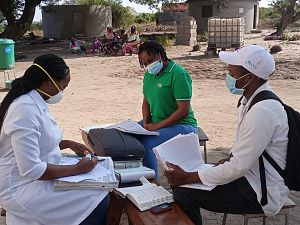
American Journal of Tropical Medicine and Hygiene articles explore effective malaria surveillance systems
26 April 2022The first of three malaria surveillance supplemental issues in the American Journal of Tropical Medicine and Hygiene (AJTMH) was published yesterday on World Malaria Day, exploring the importance of responsive surveillance –…
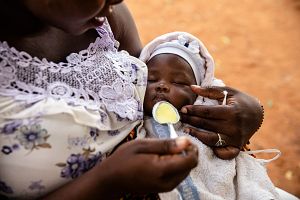
Malaria Consortium announces expansion of seasonal malaria chemoprevention to South Sudan
25 April 2022Malaria Consortium is pleased to announce the expansion of its seasonal malaria chemoprevention (SMC) programme to include an implementation study that tests the intervention in South Sudan, marking the first time SMC will be used…

New research study to determine potential impact of previous COVID-19 infection on risk of malaria among recovered patients
22 April 2022Malaria Consortium today announced a new research study to determine the burden of malaria and long-term complications following SARS-CoV-2 infection. This study follows previous ground-breaking Malaria Consortium research to dete…
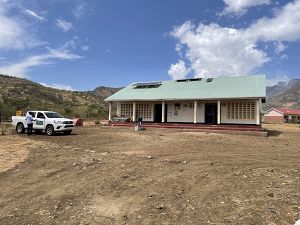
Scientific modelling for malaria policymaking
20 April 2022Researchers from the Swiss Tropical and Public Health Institute (Swiss TPH), Uganda National Malaria Control Division (NMCD) and Malaria Consortium have co-authored an opinion piece on future malaria modelling and policy shifts, w…
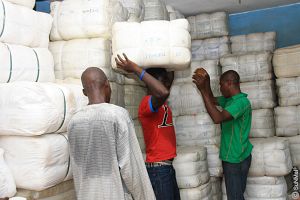
New tool to lower the costs of distributing vital insecticide-treated nets for malaria control
30 March 2022A new cost-effective decision-making tool can be used to quickly map out and prioritise regions for insecticide-treated net (ITN) distribution, especially during public health emergencies and in resource-limited settings. Malaria …

21st meeting of WHO's MPAG brings fresh momentum to the fight against malaria in Africa
25 March 2022The 21st meeting of the Malaria Policy Advisory Group (MPAG), part of the World Health Organisation (WHO)’s Global Malaria Programme (GMP), took place virtually this week, from 23 to 24 March. The Group convened to discuss t…
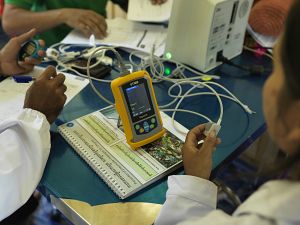
Pneumonia research needs significant funding injection to accelerate ending preventable child deaths from the disease
26 February 2022Findings from an electronic Delphi (eDelphi) research prioritisation exercise conducted by The Every Breath Counts (EBC) Research Group between November 2019 to June 2021 have today been published in The Journal of Global Health, …
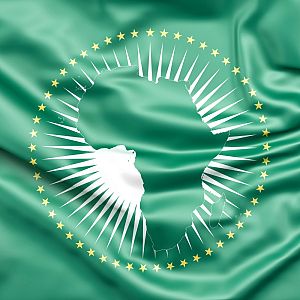
Decisive action needed now warns the latest African Union Malaria Progress Report
10 February 2022Earlier this week, African Heads of State and Government were urged to take decisive action if they are to be in with a chance of achieving the goal of eliminating malaria by 2030.
Meeting for the 35th Assembly of the African Uni…

Malaria Consortium Chief Executive to step down
3 February 2022After nine years Malaria Consortium Chief Executive Charles Nelson has confirmed plans to step down from the role in October 2022.
Charles Nelson joined Malaria Consortium in 2013, following previous positions with Me…
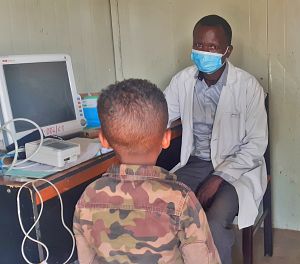
Improving neglected tropical disease services and integration into primary healthcare in Ethiopia
29 January 2022Results from a research study conducted by Malaria Consortium to improve the integration of neglected tropical disease (NTD) services into primary healthcare in Ethiopia show improvements in the capacity of primary healthcare to d…
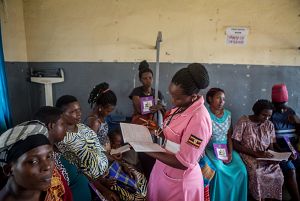
New project to boost malaria burden reduction gains in Uganda
26 January 2022To build on and boost gains made in Uganda’s mission to eradicate malaria, Malaria Consortium is implementing a new project – Supporting Uganda’s Malaria Reduction and Elimination Strategy (SUMRES) – over t…
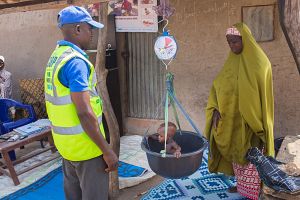
Non-medical health workers use simplified tools to treat malnutrition in children under five in rural Nigeria
5 January 2022Community health workers in rural Nigeria without formal medical education can successfully identify, treat and refer cases of malnutrition in children under five when using simplified tools and having received training, a study c…
